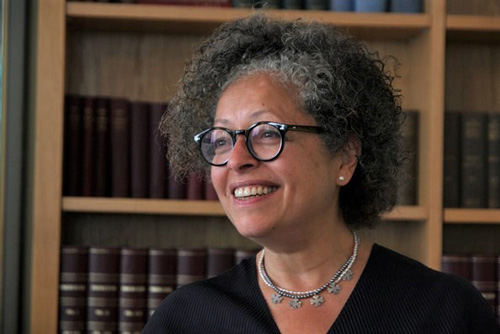Living and leading in uncertain times
 In the current global, national, and sector context, uncertainty, unpredictability, crisis and rapid change are very much in evidence. A confluence of several socio-political factors and the emergence of multiple unforeseen events, continue to bring ineradicable and unavoidable uncertainty and disruptive change into our lives. Many of the leaders we meet, talk about finding themselves outpaced by the fast and furious onslaught of daily demands, at the same time as dealing with high levels of complexity and volatility as they pursue the mission, purpose, and plans of the organisations they lead. What many find deeply unsettling, is the tension they experience between the wish and need to create strategic plans that bring focus and structure to present and future work, and the sense that this shibboleth of ‘best practice’ might not turn out to be all that useful.
In the current global, national, and sector context, uncertainty, unpredictability, crisis and rapid change are very much in evidence. A confluence of several socio-political factors and the emergence of multiple unforeseen events, continue to bring ineradicable and unavoidable uncertainty and disruptive change into our lives. Many of the leaders we meet, talk about finding themselves outpaced by the fast and furious onslaught of daily demands, at the same time as dealing with high levels of complexity and volatility as they pursue the mission, purpose, and plans of the organisations they lead. What many find deeply unsettling, is the tension they experience between the wish and need to create strategic plans that bring focus and structure to present and future work, and the sense that this shibboleth of ‘best practice’ might not turn out to be all that useful.
For the Centre for Charity Effectiveness (CCE), I co-lead the Aspiring Chief Executives and New Chief Executives programmes, helping senior charity executives and CEOs develop their leadership skills. In our modules, we explore how to lead with adaptability and agility through crisis, complexity and change.
As Margaret Heffernan, former BBC producer, Professor of Practice at the University of Bath, author and CEO of multiple major global organisations observed in her book Uncharted: How uncertainty can power change, in a complex environment, prediction doesn't work, and efficiency may be more of a hazard than a help. Our attachment to a preordained perspective on risk and to a view that equates efficiency with success, may temporarily contain our anxiety about uncertainty, but it does not help us to deal with the highly dynamic nature of the current external environment, nor does it signal or signpost a sustainable future.
Human beings have an inbuilt aversion to uncertainty and ambiguity. Our natural default is to resolve the anxiety and cognitive discomforts of not knowing by reaching for a best way, a tried and tested ‘how to’. The stubbornly pervasive view of leadership as heroic; our aching need to be steadied by an omniscient leader; held steadfast by a compelling cause; our profound need for predictability and security are all understandable, but they compromise our ability to adapt and thrive profoundly.
In a radically unpredictable world, tried and tested approaches to decision-making and planning are neither effective nor efficient. There is too much complexity: too many interconnected, interdependent events, cross-cutting megatrends, wicked problems for our mental radars and risk registers. Moreover, uncertainty is unbounded: there are no parameters to help us work out meaningful probabilities of this or that happening in three, or five let alone 10 years’ time. Psychologically, that may be a deeply uncomfortable place to be. It erodes our confidence, and saps our resolve, but it also denudes our organisational resources: psychological, social and material.
Embracing the fundamental truth that we simply cannot have the answers or know what the future holds, can be strangely liberating. Letting go of the illusion of control and a ‘false accounting’ for what lies ahead, can provide us with the necessary opportunity and space to find altogether new forms of being, knowing, and organising. Yet we are all working harder, longer, more intensely, driven by our need to find stability, our hunger for order and control, our wish to regulate and preserve the status quo, striving for greater efficiency, pursuing excellence through better structures, performance, and productivity. Often in our search for a certain path through the dysregulation that we feel in ourselves and see in our wider systems, and which the exponential demands and possibilities that a radically uncertain and complex environment proliferates.
To deliberate, to dream, to take time to notice, make sense and synthesise information and intelligence, to invest and reinvent new collaborations and communities in times of scarcity, crisis, and precarity may seem to fly in the face of reason. Yet it is precisely those very activities that temper our certainty biases and nurture our capacity to become more adaptive and resilient. The work of Eleonore Batteux and David Tuckett and colleagues, from the Centre for the Study of Decision-Making Uncertainty at University College London illuminates this tension. It is when we exercise our inherently human talents to cooperate, intuit and meticulously observe the world around us, that we can truly navigate profound uncertainty and prepare for what our future stories will hold.
Tammy Tawadros, November 2021, all rights reserved.
Tammy Tawadros is an executive coach, a CCE organisational consultant and work psychologist with many years’ experience of design and delivery of a broad range of leadership, organisational development and culture change initiatives. She also co-leads CCE's Aspiring Chief Executives programme and New Chief Executives programme.
She has received support from the Bayes Knowledge Exchange and Impact Fund to create the ‘Building the road as We Walk’ research project, the findings of which will be published this autumn as an online resource for nonprofit sector leaders to address how they may lead and implement their strategic work in uncertain times.
Read Tammy's blog on earned resilience and learned optimism.